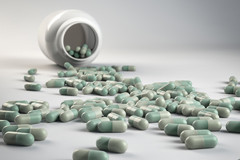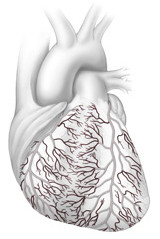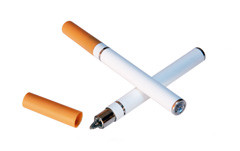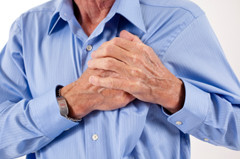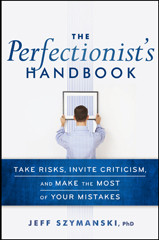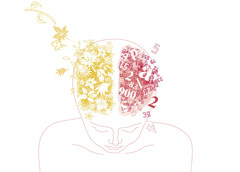
Daily cup of coffee may prevent afib recurrence

Gene-editing therapy lowers harmful blood fats in early study

What is EMDR therapy, and who can it help?

GLP-1 drugs versus bariatric surgery for treating obesity

Trying to lose weight? Be careful not to lose muscle

Two dumbbells, three exercises, and 10 minutes

Easing the emotional burden of IBS

Modify your push-ups to meet your fitness level

What is long QT syndrome?

Stroke survivors may benefit from very low LDL levels
Harvard Health Blog
Read posts from experts at Harvard Health Publishing covering a variety of health topics and perspectives on medical news.
Articles
Do chronic diseases have their origins in the womb?
Heart disease, stroke, diabetes, asthma, osteoporosis and other common chronic diseases are often blamed on genes, pollution, or the wear and tear caused by personal choices like a poor diet, smoking, or too little exercise. An intriguing hypothesis is that these and other conditions stem from a developing baby’s environment, mainly the womb and the placenta. During the first thousand days of development, from conception to age 2, the body’s tissues, organs, and systems are exquisitely sensitive to conditions in their environment during various windows of time. A lack of nutrients or an overabundance of them during these windows, so the thinking goes, programs a child’s development and sets the stage for health or disease.
Astounding increase in antidepressant use by Americans
Americans are taking antidepressants in astounding numbers. According to a report released yesterday by the National Center for Health Statistics (NCHS), the rate of antidepressant use in this country among teens and adults (people ages 12 and older) increased by almost 400% from the early 1990s to the mid 2000s. The federal government’s health statisticians figure that about one in every 10 Americans takes an antidepressant. Antidepressants were the third most common prescription medication taken by Americans in the study period. Antidepressant use was higher in women than men, and in whites than blacks or Hispanics.
A once (and future) meditator tries the relaxation response for stress
Thirty-five years ago, Dr. Herbert Benson defined and tested the relaxation response. This simple method for quieting brain activity slows the body’s processes and induces a feeling of well-being. Both have measurably positive effects on disorders caused by stress or made worse by it, including high blood pressure, abnormal heart rhythms, and many digestive disorders. In a recent lecture at Harvard Medical School, Dr. Benson described the technique and talked a crowd through it. Inducing the relaxation response is simple: Sit in a quiet place with your eyes closed. Relax your muscles and silently repeat a word, phrase, sound, or short prayer of your choosing over and over. When stray thoughts interfere (as they will), let them come and go and return to your word, phrase, or sound. Doing this daily can help ease stress.
MRIs may be safe for people with pacemakers and ICDs
People with pacemakers and implantable cardioverter-defibrillators (ICDs) are often told that they can’t get an MRI scan. The worry is that the powerful magnetic fields and radio waves MRI scanners use might “fry” the devices, induce current so hearts would beat wildly or, in the case of ICDs, cause an unnecessary shock. A new study suggests that with the proper monitoring, MRIs can be safe for many people with pacemakers and ICDs. One of the biggest obstacles will be cost, since a specially trained nurse or a doctor would need to be present to reprogram the device and to respond in case of an emergency.
A new view of the teenage brain: adaptation is job 1
A few years back, my colleague Michael Miller wrote an interesting article about the adolescent brain in the Harvard Mental Health Letter. I had only a passing interest in the topic at the time, being far more focused on raising a 9-year old and a pair of 8-year-olds. Fast-forward six years, and I now have […]
Saw palmetto fails to relieve BPH symptoms in new Harvard study
A new study published in The Journal of the American Medical Association finds that saw palmetto, a fruit extract commonly taken to treat urinary tract symptoms caused by an enlarged prostate (technically termed benign prostatic hyperplasia, or BPH), is no more effective in relieving symptoms than placebo, even at high doses. The federally funded study […]
Ask Doctor K: a new forum for health questions
For years, Dr. Anthony Komaroff has answered his patients’ questions one-on-one. With the launch of Ask Doctor K, a daily newspaper column that appears in 450 newspapers, he will be answering questions from people across the U.S and beyond via daily newspaper and the Internet (at AskDoctorK.com). Dr. Komaroff is a practicing physician, Professor of Medicine at Harvard Medical School, and Editor in Chief of Harvard Health Publishing. In the column, he will offer clear answers and straight advice to readers’ questions, talk about new treatments that are available today or will be soon, and focus on proven changes in lifestyle that can keep readers healthy, help them cope with chronic diseases, and improve their quality of life.
Blockages in tiny heart arteries a big problem for women
About 10% of women who have heart attacks seem to have clear, unblocked arteries. They don’t, really. Instead, they have a problem inside tiny arteries supplying the heart muscle, called microvessels. Traditional diagnostic tests can’t “see” into microvessels. In larger coronary arteries, the buildup of cholesterol-filled plaque creates distinct bulges that narrow the vessel at a particular spot, reducing blood flow. In microvessels, plaque uniformly coats the inner layer. This reduces the space for blood flow and makes the arteries stiff and less able to expand in response to exercise or other stress. Researchers are still trying to determine the best ways to diagnose and treat microvessel disease. Talking to cardiologists at Harvard-affiliated Brigham and Women’s Hospital, Dr. C. Noel Bairey Merz said that the erectile dysfunction drug Viagra (sildenafil), which was originally developed to improve blood flow to the heart, is being tested as one possible therapy.
Tinnitus: What to do about ringing in the ears
Sometimes chronic tinnitus can be fixed by taking care of the underlying cause, like grinding your teeth at night or taking aspirin. Otherwise, one of the simplest approaches is masking the noise by listening to music or having a radio, fan, or white-noise machine going in the background. Some companies make devices worn like hearing aids that generate low-level white noise. Hearing experts often recommend masking before turning to more expensive options such as cognitive behavioral therapy, tinnitus retraining therapy, biofeedback and stress management, and transcutaneous electrical stimulation of parts of the inner ear.
Electronic cigarettes: Help or hazard?
Smokers who want to quit can turn to a nicotine replacement products, prescription medications, and counseling. What about the newest stop-smoking aid, the electronic cigarette? Despite its appeal, we don’t know enough about the safety or effectiveness of electronic cigarettes to give them the green light. Preliminary studies from the FDA, New Zealand, and Greece raise some concerns about the dose of nicotine delivered and potentially harmful chemicals that might be in the vapor. Until good studies have been done on electronic cigarettes, the best way to quit involves using nicotine replacement or a medication along with some sort of counseling or support, either in person, by telephone, or even by text message.
Itching rash or tingling toes: Is gluten the cause?
Gluten, an umbrella term for proteins found in wheat, rye, and barley, makes dough resilient and stretchy. Some people can’t eat foods made with these grains because gluten triggers an immune reaction and causes inflammation of the lining of the small intestine. This can eventually interfere with the absorption of nutrients from food. This condition, called celiac disease, can cause symptoms like gas, bloating, and abdominal cramps. A growing number of people who don’t have celiac disease suffer many of its symptoms. They are classified as “gluten sensitive” or “gluten intolerant.” A new Special Health Report from Harvard Health Publishing called “Food Allergy, Intolerance, and Sensitivity” covers how to cope with gluten sensitivity, lactose intolerance, and other food allergies and sensitivities.
Doctors can confuse heartburn and heart disease, even in themselves
Many people have trouble telling whether they are having heartburn or a heart attack. “Many people” includes doctors. A personal story from a Harvard physician describes how he treated himself with strong acid-suppressing pills until a near heart attack made him realize he had heart disease. His story appears in an updated Special Health Report from Harvard Medical School called “Heart Disease: A guide to preventing and treating coronary artery disease.”
How to become a better perfectionist
Perfectionism has a dark side—it is often seen as obsessive and sometimes pathological. But it has a bright side, too. Desirable aspects of this personality trait include conscientiousness, endurance, satisfaction with life, and the ability to cope with adversity. This helps explain why some perfectionists become corporate leaders, skilled surgeons, or Olympic champions. In his new book, The Perfectionist’s Handbook, Dr. Jeff Szymanski describes how to become a better perfectionist—by building on the strengths of this quality and learning to minimize its drawbacks. A key step in becoming a better perfectionist is to learn how to turn mistakes into strategic experiments, says Szymanski, a clinical instructor of psychology at Harvard Medical School and executive director of the International OCD Foundation.
What to do when your child refuses to go to school
As summer winds to a close, many school age children are reluctant to greet another school year. Who can blame them? Swapping swimming, lazy days, camp activities, and late nights for classrooms, homework, and early morning bus rides isn’t much of a trade at all. For some children, reluctance turns into school refusal. This goes beyond an occasional “I hate school” or “I don’t want to go to school today.” Children with school refusal may sob, scream, or plead for hours before school in an attempt to stay home. They may often complain of illness and run home from school if forced to go. Absences can last weeks or even months. The problem may start at any point but common triggers are the start of a new school year, making the transition to a new school (middle school to high school, for example), or returning from school vacation. School refusal often stems from an anxiety disorder, according to Coping with Anxiety and Phobias, a new Special Health Report from Harvard Medical School. Helping a child through school refusal often takes concerted effort from the parents, school staff, a therapist, and the child.
“Portfolio” beats low-fat diet for lowering cholesterol
When it comes to lowering cholesterol, a “portfolio” diet that includes cholesterol-lowering foods is better. In a head-to-head trial, the portfolio approach lowered harmful LDL by 13%, compared to a 3% reduction for a traditional low-fat diet. Elements of the portfolio diet included a daily handful of nuts; two teaspoons of margarine enriched with plant sterols; two servings of foods rich in soluble fiber, such as oatmeal, psyllium-enriched cereals, barley, and vegetables such as okra and eggplant; and two servings of soy-based foods, such as a glass of soy milk or a soy burger.
Painful, disabling interstitial cystitis often goes undiagnosed
Millions of Americans—most of them women—suffer from a bladder condition known as interstitial cystitis. According to a new study of this disorder, fewer than 10% of women with symptoms of interstitial cystitis are actually diagnosed with the disorder, even though it severely affects their lives. Without a proper diagnosis, women with interstitial cystitis are missing […]
How do you know if you have obsessive-compulsive disorder?
Are you worried that certain rituals might be obsessive or compulsive? If they aren’t interfering with your ability to function, relax. It’s obsessive-compulsive disorder (OCD) only when obsessions and compulsive behavior become so severe that they interfere with your ability to work or have relationships. These behaviors help people with OCD deal with overwhelming feelings of anxiety that are usually triggered by intrusive images and thoughts, explains Dr. Jeff Szymanski, a clinical instructor in psychology at Harvard Medical School and author of The Perfectionist’s Handbook, which will be published in September. A combination of medications and psychotherapy can help many people with OCD live more balanced lives. A mainstay of treatment is called exposure and response prevention—a sort of “face your fears” therapy.
The power of positive psychology: finding happiness in a cold ocean swim
One way to experience happiness is to go with the “flow.” Flow is a state of intense absorption in which you lose awareness of time. It occurs when you strike the right balance between challenge and skill. It is also one of the elements that help create happiness. No matter what your natural tendency, recognizing how flow occurs (or doesn’t) in your life and creating opportunities for more flow experiences can be a potent route to increased happiness. A new report from Harvard Medical School, called Positive Psychology, explores both time-tested and modern avenues to happiness, including flow, expressing gratitude, and developing self compassion.
Therapy dog offers stress relief at work
Painkillers pose problems for people with heart disease
Millions of people take nonsteroidal anti-inflammatory drugs (NSAIDs) such as ibuprofen (Advil, Motrin and others), naproxen (Aleve, Naprosyn, and others), and celecoxib (Celebrex) to relieve pain and inflammation. During the last few years, researchers have raised concerns that taking these drugs often may be hard on the heart as well. The latest study, published in the July 2011 issue of the American Journal of Medicine, suggests that regular use of NSAIDs poses a special problem for people who already have heart disease, boosting their chances of having a heart attack or stroke. This research doesn’t mean that people with high blood pressure and heart disease should stop taking NSAIDs, especially if they are used to ease pain from a chronic condition like arthritis. But it may make sense to try an alternative first.
Is sunlight addictive?
Is sunlight addictive? That provocative idea was raised by Dr. David Fisher, chief of dermatology at Massachusetts General Hospital in Boston, in a presentation at Harvard Medical School. He cited new evidence suggesting that being in the sun stimulates the so-called “pleasure center” in the brain and releases a rush of feel-good chemicals like endorphins, much as happens with addictive substances or activities. Why? Humans need vitamin D to survive. Once upon a time, it came mainly from skin—skin exposed to sunlight makes vitamin D. So the feelings of pleasure we get from sunlight may be part of a survival mechanism to get us the vitamin D we need.
Fight fatigue by finding the cause
Feeling tired? If so, it’s not surprising. Fatigue is one of the most common problems people report to their doctors. But fatigue is a symptom, not a disease. Different people experience it in different ways. The tiredness you feel at the end of a long day or after a time zone change might feel similar to that resulting from an illness. Fatigue from stress or lack of sleep usually subsides after a good night’s rest, while disease-related lethargy is more persistent and may be debilitating even after restful sleep. Either way, you don’t have to live with it. You can find out what is causing you to feel tired and discover what you can do to renew your energy levels.

Daily cup of coffee may prevent afib recurrence

Gene-editing therapy lowers harmful blood fats in early study

What is EMDR therapy, and who can it help?

GLP-1 drugs versus bariatric surgery for treating obesity

Trying to lose weight? Be careful not to lose muscle

Two dumbbells, three exercises, and 10 minutes

Easing the emotional burden of IBS

Modify your push-ups to meet your fitness level

What is long QT syndrome?

Stroke survivors may benefit from very low LDL levels
Free Healthbeat Signup
Get the latest in health news delivered to your inbox!
Sign Up

